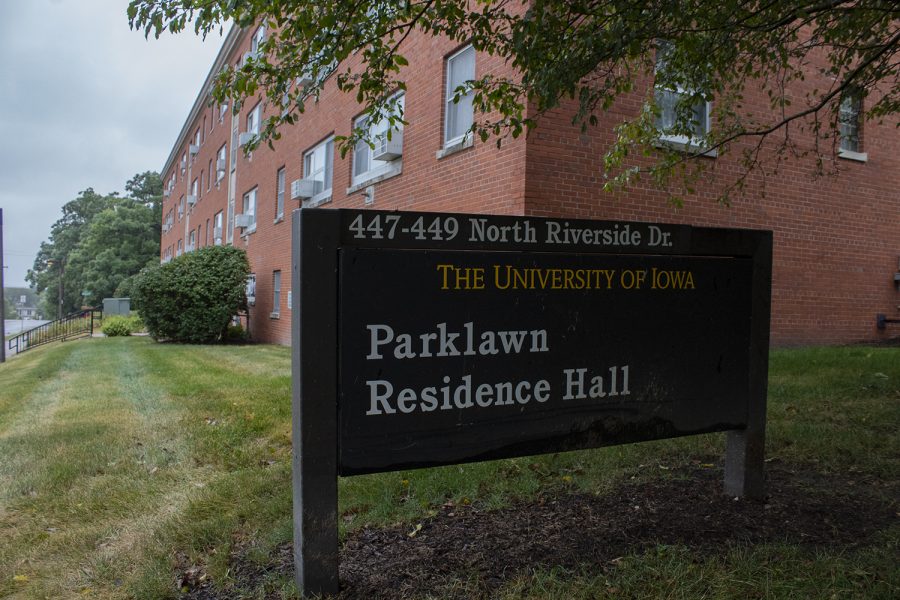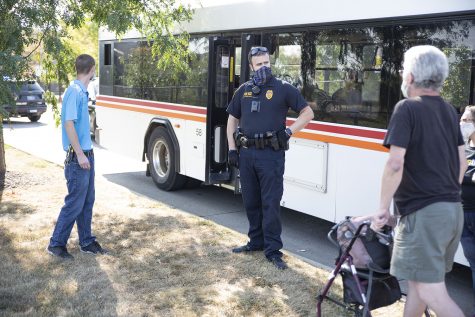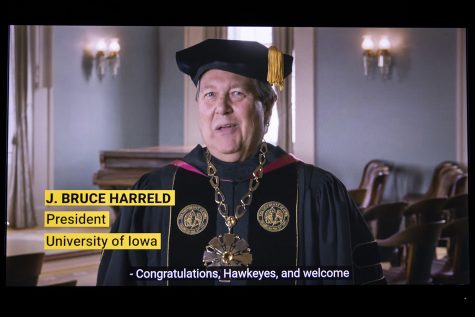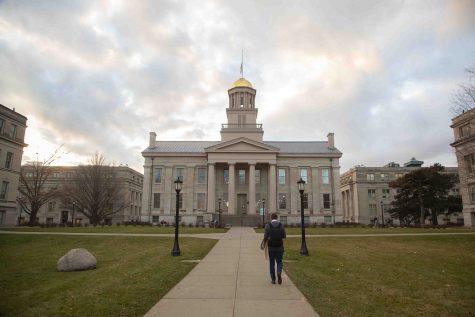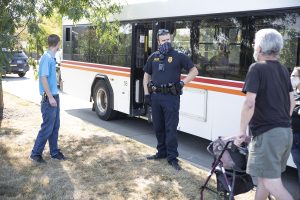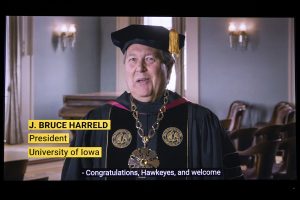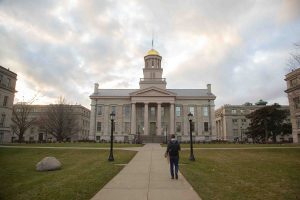Parklawn Hall will possibly be used as extra quarantine space for students
With cases still climbing, extra space is becoming available for students who need to quarantine or isolate after testing positive for COVID-19. UI housing is reopening Parklawn Hall to possibly use if the space is needed.
Parklawn Residence Hall is seen on Sept. 8, 2020. Parklawn, which hasn’t housed students since 2017, is now reopening for those who need to quarantine due to COVID-19.
September 10, 2020
Parklawn Residence Hall, once an apartment-style living space for students, could reopen to be used as a COVID-19 quarantine and isolation space if the University of Iowa experiences another spike in coronavirus cases.
After the first initial spike of COVID-19 in late August, there has been a plateau of self-reported positive cases, as reported by Johnson County Public Health. But, case counts among people ages 18-40 in Johnson County continue to make up a majority of positive cases since August.
“While it is certainly not time to celebrate, it should be acknowledged that, as a community, we have considerably slowed the spread of the disease,” the university said in a COVID-19 update.
With this new information, Assistant Vice President for Student Life Von Stange said UI Housing and Dining wants to be prepared in case of another spike in cases on campus. Thus, Parklawn Residence Hall will reopen after closing in 2017 to possibly be used as a quarantine or isolation space.
Parklawn Residence Hall was a smaller building on the west side of campus. It was no longer needed when Catlett Residence Hall was opened and could accommodate more students back in 2017.
“Due to a change in the university’s enrollment strategy, Housing and Dining has not needed Parklawn for the past few years, but maintained the hall for future use,” Stange said.
The hall has been cleaned following guidelines from the Center for Disease Control and Prevention and may be used for students needing to self-isolate or quarantine, though it is not being used at this time, he said.
Related: One University of Iowa student’s day in quarantine
Since Parklawn is so far off campus, located on North Riverside Drive behind Hancher Auditorium, Stange said UI Housing and Dining has come up with a plan to keep both students and staff safe.
“If Parklawn is used, volunteers will drive students and their belongings to the hall and meals will be delivered daily,” said Stange.
He added that UI Housing and Dining will also continue to follow the same contactless check-in process that exists at other quarantine and isolation spaces. Prior to any students’ arrival, a staff member will check-in by phone, deliver a welcome bag and supplies for the incoming students, and place the room keys in the room for the incoming students, Stange said.
Stange said even though the physical side effects to this virus can be difficult, mental health can be impacted, as well.
“There will be follow up by a check-in call from a health-care provider and access to embedded therapists and other resources as needed,” said Stange.
Some students, including UI first-year Brooke Gradiner said they would feel comfortable with quarantining in Parklawn.
“I would feel comfortable going there,” Gradiner said. “I think it would be a better idea to get students off of [the main] campus.”
Stating no main concerns and supporting this new plan, Gradiner said if there is enough communication between administrative staff and the students, she does not think it would be an issue.
UI first-year Matt McBeth also agreed and said the move to Parklawn could be a good idea.
“I would be okay with going that far if it meant I was not coming into contact with anyone that I could give it to,” he said.
McBeth added that even though there are designated self-isolation floors and dorm rooms in the more populated residence halls for students, there is still that small possibility for them to run into people they could give the virus to.
“It probably would not be as convenient because you would not be able to get food or other things whenever you wanted to,” McBeth said.



